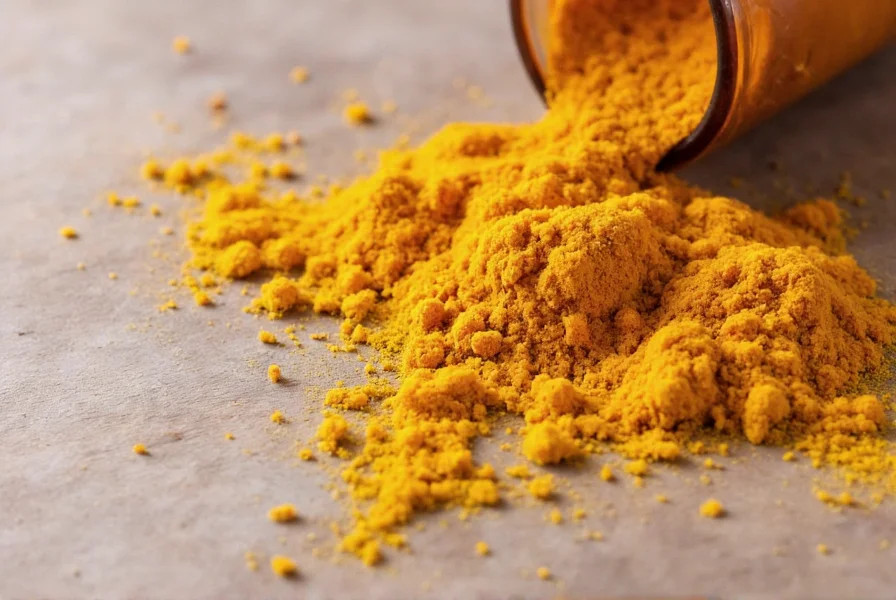When exploring whether does turmeric make you sleepy, it's essential to separate fact from common misconceptions. Turmeric, a vibrant yellow spice derived from the Curcuma longa plant, has been used for centuries in traditional medicine and cooking. Its primary active component, curcumin, accounts for most of its studied health benefits including anti-inflammatory and antioxidant properties.
Despite its popularity in evening "golden milk" recipes promoted for better sleep, turmeric doesn't contain compounds that directly induce sleepiness. Unlike herbs such as valerian root or chamomile that contain natural sedatives, turmeric works through different physiological pathways. Research published in Phytotherapy Research confirms that curcumin doesn't interact with GABA receptors or other neurological pathways typically associated with sleep regulation.
Understanding Turmeric's Relationship with Sleep
While turmeric doesn't cause drowsiness, several indirect mechanisms might explain why some people associate it with improved sleep quality:
Anti-Inflammatory Effects
Chronic inflammation can disrupt sleep patterns. Turmeric's potent anti-inflammatory properties may help reduce inflammation-related sleep disturbances. A 2020 study in Nutrients found that participants with inflammatory conditions who took curcumin supplements reported modest improvements in sleep quality, likely due to reduced pain and discomfort rather than direct sedative effects.
Golden Milk Ritual
The warm, comforting ritual of drinking golden milk before bed—typically containing turmeric, milk, and spices like cinnamon and ginger—creates a psychological wind-down routine. The warmth, combined with other ingredients like magnesium-rich nuts sometimes added to the recipe, may promote relaxation. This explains why people asking does turmeric make you sleepy often report better sleep with golden milk, though turmeric itself isn't the primary sleep-inducing component.
Antioxidant Properties
Oxidative stress affects sleep regulation. Turmeric's antioxidant effects may support overall neurological health, potentially improving sleep quality over time. However, this represents a long-term benefit rather than immediate drowsiness.
| Factor | Effect on Sleep | Scientific Evidence Level |
|---|---|---|
| Direct sedative properties | No effect | High (multiple studies) |
| Anti-inflammatory effects | Indirect improvement | Moderate |
| Antioxidant properties | Long-term potential benefit | Preliminary |
| Ritual consumption (golden milk) | Psychological relaxation | Anecdotal |
Research on Turmeric and Sleep Patterns
A comprehensive 2022 review in Complementary Therapies in Medicine analyzed 17 studies examining curcumin's effects on sleep. None demonstrated that turmeric causes immediate drowsiness. However, several noted modest improvements in sleep quality among participants with chronic inflammatory conditions after 8-12 weeks of regular curcumin supplementation.
Researchers hypothesize that turmeric's potential sleep benefits stem from:
- Reducing pain that interferes with sleep
- Lowering inflammation markers associated with sleep disorders
- Supporting overall brain health through antioxidant activity
When Turmeric Might Affect Alertness
While turmeric doesn't cause sleepiness, certain situations might create the perception that does turmeric make you sleepy:
- Combination products: Some turmeric supplements include sleep-promoting ingredients like ashwagandha or melatonin
- High doses: Extremely high doses (uncommon in dietary use) might cause mild digestive discomfort that could indirectly affect energy levels
- Individual reactions: Rare cases of unexpected reactions, though not documented in scientific literature
Recommended Usage Guidelines
For those concerned about potential drowsiness from turmeric:
- Standard culinary doses (1-3 grams daily) pose no sleep-related concerns
- Supplemental curcumin (typically 500-2,000 mg daily) shows no evidence of causing daytime sleepiness
- Consuming turmeric in evening beverages is safe and may support relaxation through ritual
- Those taking blood thinners or diabetes medications should consult doctors before high-dose supplementation
When to Consult a Healthcare Provider
While turmeric is generally safe, consult a healthcare provider if you experience:
- Unexpected drowsiness after consuming turmeric products
- Sleep disturbances that begin after starting turmeric supplementation
- Concerns about interactions with existing medications
Remember that persistent sleep issues typically indicate underlying conditions requiring professional evaluation rather than being related to dietary turmeric consumption.
Conclusion
The question does turmeric make you sleepy has a clear answer based on current scientific understanding: turmeric itself does not cause drowsiness. Its active compound curcumin lacks sedative properties. Any perceived sleep benefits likely stem from turmeric's anti-inflammatory effects, the comforting ritual of evening consumption, or other ingredients in turmeric-containing beverages. When consumed in typical dietary amounts, turmeric won't interfere with daytime alertness while potentially supporting overall health factors that contribute to better sleep quality over time.
Frequently Asked Questions
Can I take turmeric before driving or operating machinery?
Yes, you can safely take turmeric before driving or operating machinery. Turmeric doesn't contain sedative compounds that would impair alertness or reaction time. Unlike some herbal supplements known to cause drowsiness, standard turmeric consumption won't affect your ability to drive safely.
Why do some people feel sleepy after drinking golden milk?
The sleepiness some experience after golden milk likely comes from the warm beverage ritual, other ingredients like cinnamon or ginger, potential added nuts containing magnesium, or the psychological association of the evening routine with sleep preparation—not from turmeric itself. The comforting ritual creates relaxation that may promote better sleep onset.
Does turmeric help with insomnia?
Turmeric doesn't directly treat insomnia, but its anti-inflammatory properties may help improve sleep quality for people whose insomnia relates to chronic pain or inflammation. Research shows potential long-term benefits for sleep quality rather than immediate relief for insomnia symptoms.
Can turmeric supplements cause daytime drowsiness?
No, turmeric supplements don't cause daytime drowsiness when taken at standard doses (500-2,000 mg of curcumin daily). Clinical studies have not documented sedation as a side effect of turmeric supplementation. If you experience unexpected daytime sleepiness with turmeric supplements, consult your healthcare provider as it may indicate another issue.
Is it safe to take turmeric at night?
Yes, it's perfectly safe to take turmeric at night. Many people enjoy turmeric in evening beverages like golden milk as part of a relaxing bedtime routine. Since turmeric doesn't cause drowsiness, taking it at night won't disrupt your sleep-wake cycle, and the ritual may actually support better sleep preparation.











 浙公网安备
33010002000092号
浙公网安备
33010002000092号 浙B2-20120091-4
浙B2-20120091-4